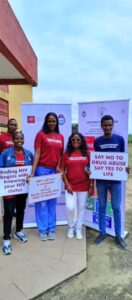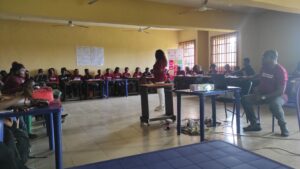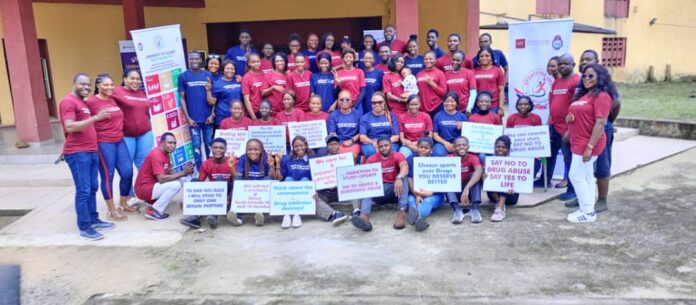Calabar, Cross River —Not less than fifty (50) students of the University of Calabar, Calabar (UNICAL) have undergone a four (4) training on learning how to enable healthy behaviours against HIV (Human Immunodeficiency Virus), drugs and substance abuse NEGROIDHAVEN can say. This training is courtesy of the pet project called University of Calabar Sports For Life, which is an initiative of the Vice Chancellor, Prof. Florence Obi, in partnership with Aids Healthcare Foundation.
While addressing newsmen in UNICAL, Grace Ibor, the deputy director, Office of Strategic Fund Management & Alumni Affairs, University of Calabar, disclosed that, ‘Aids Healthcare Foundation was gracious enough to grant the University of Calabar a seed fund to be able to promote sport, and use the sport to help students cope with stress and learn about behaviours that will reduce their risk to HIV and drug use’.
Explaining that drug use/abuse has become a challenge in Nigeria especially among young people, deputy director Ibor observed that the lot of challenges university students go through hamper their academic performance.
According to her, ‘We are looking at a situation where we are able to help the university students have a safe space where they can talk about their challenges, where it has to do with academic or self development. The whole of this environment (referring to a section of Hall 10 of the Female Hostel) is called the “University of Calabar Youth Friendly Hub.”
Continuing, Ibor said, ‘We already have indoor games here. We have counsellors. We have development partners who provide some forms of support to the hub. So this training is a boost. This place cannot contain our over 40,000 students. But we have peer educators from amongst the students, then they will become ambassadors in their individual or respective department. That way we are able to take services from the hub to the classroom.
‘So we envisaged that when the students return for the second semester we already have trained foot soldiers who will be able to provide information on how people can cope with stress and not go to drugs. And how young people can reduce their risky behaviours. Behaviours that put them at risk of drug use and contracting HIV.’
During the 4 days training, beneficiaries were exposed to the development of soft skills such as life competency skills which spans across such competencies as communication and goal setting skills, building self-esteem, assertiveness, negotiation and refusal skills, leadership skills, team building skills and coping with stress.
The choice of University of Calabar traces to the high population density of over 43,000 young persons, which is a target of the project. In addition to this, there is host community where young people from the University of Calabar interact with residents of the neighbouring environs.
According to a National Survey on Drugs and Substance Use and UNICEF all-in Assessment for HIV Transmission, studies have shown (though not particularly the University of Calabar) that HIV transmission has reduced across all other age group, but among young people (15-24years) HIV transmission is not reducing.
‘Therefore the choice to use the University of Calabar is very pertinent so that we will be sure that our peer educators within a short period of time can reach a higher number of other youths and then we can have result’, Ibor observed.
In an interaction with a cross section of the student beneficiaries of the training, they admitted that the sessions at the hub was a life changing experience. They expressed their enthusiasm to deploy the skills to the overall benefits of their fellow students.










